Why sign a confidentiality agreement?
The absence of a confidentiality agreement (NDA), or one that is poorly drafted, will have serious consequences for your company.
Don’t neglect it: it must be perfect for effective protection. And it doesn’t cost that much to call in a professional.
Preserve your ability to patent:
Premature disclosure makes it impossible to obtain a patent, as the invention is no longer new.
Protect your confidential information:
When should I sign a confidentiality agreement?
Who should sign a confidentiality agreement?
Is a free confidentiality agreement template enough?
Incomplete: a generic confidentiality agreement doesn’t always cover all the specifics of industrial property. For example, is there a prohibition on using my invention, or only on disclosing it?
Pitfalls: simply signing a confidentiality contract is not enough to be protected. There are pitfalls and best practices to be aware of to ensure optimal protection that can be used in the event of problems.
The YesMyPatent offer
In all cases where an invention is to be disclosed, whether to a raw material supplier, an R&D office or a neighbor specializing in communications, it is essential to sign a confidentiality agreement with the appropriate industrial property notices.
A simple sample contract found on the Internet is not enough! It won’t protect the industrial property aspects of your invention. And as far as patents are concerned, disclosing an invention will prevent it from being protected by patent.
It is therefore important that the NDA covers all the aspects to be protected and is tailor-made.
Let our experts help you secure your confidential information.
More information
The NDA is a document that comes into play very early on in a collaboration. Whether exchanging information with a partner, a service provider or a customer, the NDA is signed at the very start of talks and negotiations. It is a legal document requiring a handwritten signature, but it can also be signed electronically. The use of secure, reliable software that enables time-stamping and identification of signatories is pertinent.
When to sign an NDA? It’s a good idea to sign an NDA at the very start of a partnership. It should be noted that this contract is not an obligation, although it is a strongly recommended procedure. Have you identified a potential collaboration? Defining the information to be protected and identifying situations involving disclosure are among the issues to be addressed when defining your industrial property strategy.
We recommend that you submit a confidentiality agreement for signature with each new project and collaboration. This applies even if the collaboration is with someone with whom you have already signed an NDA before. In fact, the previous confidentiality agreement may not cover the new requirements.
Confidential information circulates within a company. In France, the law on business secrecy governs data of strategic importance to a company. However, the confidentiality contract to be signed by an employee will specifically cover confidential work-related information. As soon as an employee comes into contact with sensitive information and data in the course of his or her duties, an NDA must be signed. This is especially true when there are particularly sensitive issues requiring secrecy. This can be achieved by incorporating a confidentiality clause directly into an employment contract, or by drawing up an NDA in parallel. It is therefore a good idea to call in an industrial property expert as soon as a new employee is recruited. Discretion thus becomes a contractual obligation.
The definition of the confidentiality framework must also be agreed within the company. By having your employees sign an NDA, you are asking them to commit to ensuring that no confidential information is divulged. By putting in place secure procedures, you will also be giving your employees the keys to maintaining professional secrecy: raising awareness of IT security, setting up secure platforms, proposing dedicated communication channels, etc.
